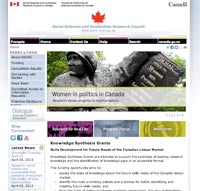EVENTS
Conference provides forum for innovative cross-sectoral approaches to food system issues facing Ontario
Sustain Ontario and its presenting partners are proud to announce the launch of registration for the 2013 Bring Food Home Conference. Taking place in Windsor, Ontario on November 17-18-19, Bring Food Home is Ontario’s sustainable food system conference. With dozens of workshops and presentations by producers, educators, chefs, poverty advocates, First Nations’ leaders, and more, the three-day conference offers a forum to share experiences and expertise in assisting and directing the development of a better food system for the province. Read more…
Planning for Food-Friendly Municipalities
The Waterloo Region Food System Roundtable is calling on Foodies in Waterloo Region to join in the work of advocating for more food-friendly municipalities in Waterloo Region. The first organizing meeting will be held Wednesday, October 2nd. It will focus on a new report by Krista Long which outlines ways to create more supportive environments for community gardens and temporary farmers’ markets in Waterloo Region. Read More…
IN THE NEWS
Group exploring food hub for Grey County
Grey County farmers may soon have a hub where they can drop off their product to be distributed to markets across Southern Ontario. The Grey County Chefs’ Forum is currently working on creating a food hub in southern Grey County that would link the wares of local farmers with buyers in both the Grey-Bruce region as well as those in the GTA and beyond. Sun Times, Owen Sound.
Read more…
The 2013 National Food Hub Survey, conducted by MSU’s Center for Regional Food Systems and the Wallace Center at Winrock International, show that hubs throughout the United States continue to develop as financially viable businesses providing locally produced food to restaurants, schools, grocery stores and other wholesale customers. Food hubs may also provide much needed size-appropriate infrastructure and marketing opportunities for local food produced by small and midsized farms and ranches.
Read more…
Further Releases from the Holland Marsh
“The autumn wind is a pirate. Blustering in from sea with rollicking song, he sweeps along swaggering boisterously. His face is weather beaten, he wears a hooded sash with a silver hat about his head . . . the autumn wind is a raider, pillaging just for fun.”
A reminder, if you will, that all good things come to an end – as will this video series, which has only one more week after this. We sincerely hope that you have enjoyed this educational series about life in Ontario’s crown jewel – the Holland Marsh.
Video clips – for this week:
Confronting Climate Change + Bonus Clip
Projet de loi pour les aliments locaux / Bill to Promote Local Food
On June 17, I introduced Bill C-539 in an effort to promote local foods. The goal is to come up with a Canada-wide-buy-local strategy and to develop a local procurement policy for all federal institutions. This will help support Canadian farmers, create jobs and reduce transportation-related pollution. Read more…



